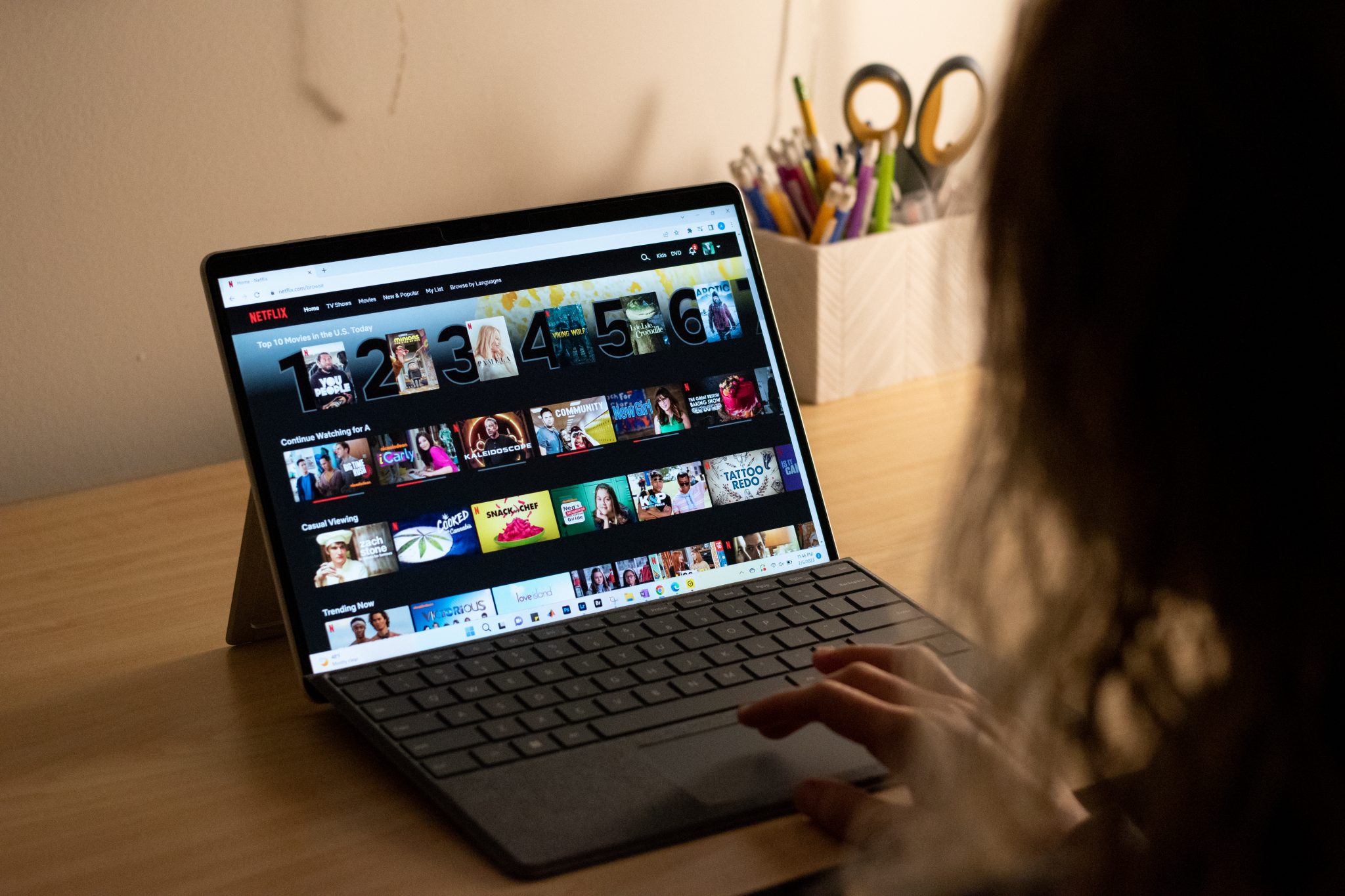Views expressed in opinion columns are the author’s own.
“Who’s watching?” No one, Netflix. No one is watching.
The digital footprint is real. If you’ve been online for even five minutes over the past few days, chances are you’ve read about Netflix’s plans to crackdown on password sharing.
Following confusion over a proposed Netflix policy that said users would need to verify their home devices once every month, social media was sent into a frenzy. Many expressed their frustration with this decision, and rightfully so. I’ve seen various Twitter users spouting ‘what about …’ anecdotes, disapproving of Netflix for seemingly not caring about the lives of college students, people who travel and anyone else who has any reason not to be in their house often enough to abide by these proposed guidelines.
This unpopular, potential new policy has been explained as merely a trial in Chile, Costa Rica and Peru, which Netflix clarified after backlash. However, Netflix users still have reason to be upset as these guidelines are unfair and remove the aspect of ease on which Netflix has been so reliable. And just because these trials are occurring outside of the U.S. does not mean the policy does not have the potential to be implemented here in the future.
Many younger users of the platform — specifically college students — are disadvantaged and alienated by these potential changes. Therefore, if Netflix wants to make up for its recent subscriber and monetary losses — and avoid more — they should implement alternative account moderation mechanisms.
To start, alienating college students as viewers could be a massive economic mistake on Netflix’s part. A study conducted in 2022 by Horowitz Research crowned Netflix as the most popular streaming platform among today’s youth. Of the participants in the study, 71 percent of those aged 18 to 24 use Netflix each week. Moreover, another study suggested that nine out of 10 college students watch Netflix and that many of us routinely binge watch. Given our generation’s pop cultural sway in society, our viewing habits clearly have large economic and cultural implications.
Currently, the Netflix U.S. Help Center states those outside of the main household will need their own account to watch Netflix, meaning that plans to crack down on password sharing will likely still commence in some capacity. As college students, those of us who do not live at home might struggle to access Netflix, which will undoubtedly affect Netflix’s bottom line — and the overall American popular culture.
Perhaps one of the most plausible alternative solutions would be for Netflix to establish a student plan. Many other major services offer student plans, and with the popularity of Netflix, not having a student plan is quite confusing and frankly, frustrating.
Student discounts are widespread and popular for a reason, and it’s clear the range of plans Netflix has is not conducive to students’ and their spending habits. With many students already struggling to meet their basic needs and not making livable wages, it would be unreasonable to expect them to pay for their own full-price subscription.
Students want to use streaming services, but they become an easy expense to cut when other bills take precedence. As such, establishing a Netflix student plan might discourage password sharing among our demographic, while still holding onto that coveted student-aged audience.
When we look at how other companies manage password sharing, it lends even more reason to disprove Netflix’s potential new changes. For example, other platforms such as HBO Max, Hulu and Amazon Prime all have reasonable plans for managing account sharing. These services recognize the value in keeping their younger audiences in tow. Their pricing mechanisms reflect that of today’s consumers, as they realize the need to move beyond the traditional nuclear family model of expecting all in the family to have constant access to in-home WiFi. As a result, these other streaming services are more inclusive, as they encompass consumers who are perpetually on the go, nodding to the contemporary lifestyle of many Americans.
Why, then, can’t Netflix take a similar route?
Instead of enforcing their alternative “Extra Member” proposition, it would be more beneficial to maintain their current system of free account sharing. Not only is this a potentially unsuccessful move rather than a beneficial solution to password sharing, but it’s downright unfair.
With all the uncertainty surrounding Netflix’s management of password sharing, time will only tell how impactful it will be toward college students. Even if nothing substantially changes with Netflix, the public response to these proposed changes says enough about what Netflix shouldn’t do, and opens up conversations for what they should.
Vrisha Sookraj is a junior psychology major. She can be reached at vsookraj@terpmail.umd.edu.



